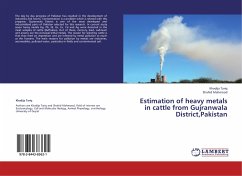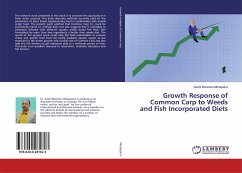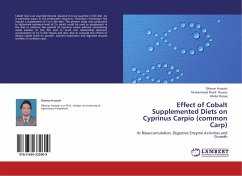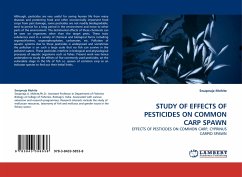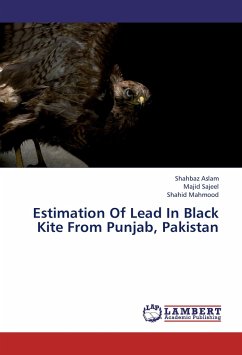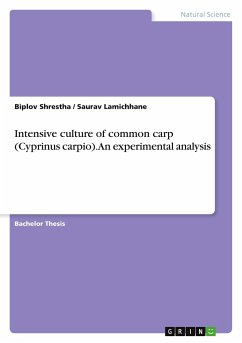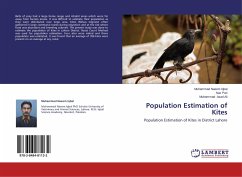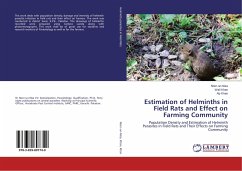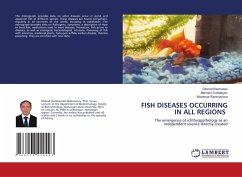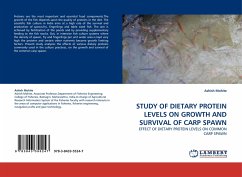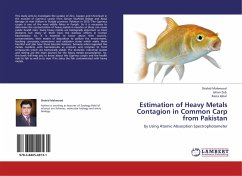
Estimation of Heavy Metals Contagion in Common Carp from Pakistan
by Using Atomic Absorption Spectrophotometer
Versandkostenfrei!
Versandfertig in 6-10 Tagen
32,99 €
inkl. MwSt.

PAYBACK Punkte
16 °P sammeln!
This study aims to investigate the uptake of Zinc, Copper and Chromium in the muscles of Cyprinus carpio from Akram Shaheed Bridge and Rasul Barrage at river Jhelum in Punjab province, Pakistan in 2010. The Cyprinus carpio is one of the most edible fishes in Punjab. So it is necessary to determine the concentration of heavy metals in muscles as these can cause public health risks. Some heavy metals are biologically important as trace elements but many of them have the biotoxic effects in human biochemistry. So, it is essential to know about their sources, concentrations, their modes of deposit...
This study aims to investigate the uptake of Zinc, Copper and Chromium in the muscles of Cyprinus carpio from Akram Shaheed Bridge and Rasul Barrage at river Jhelum in Punjab province, Pakistan in 2010. The Cyprinus carpio is one of the most edible fishes in Punjab. So it is necessary to determine the concentration of heavy metals in muscles as these can cause public health risks. Some heavy metals are biologically important as trace elements but many of them have the biotoxic effects in human biochemistry. So, it is essential to know about their sources, concentrations, their modes of deposition to pollute the environment, leaching processes, conversions and oxidation states which make them harmful and also how these become biotoxic, because when ingested the metals combine with biomolecules as proteins and enzymes to form compounds which are biotoxically stable. The domestic, industrial wastes and mining are the main sources for the heavy metals accumulation. So, this book willhelp you to know about the Cyprinus carpio and the health risks to fish as well as to man if he takes the fish contaminated with heavy metals.



